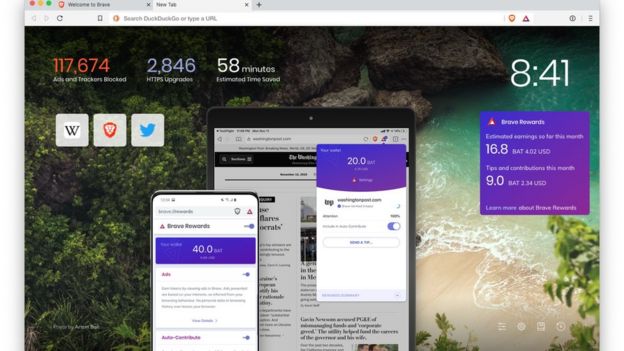Marco Bravo

If you don’t know, ask – if you know, share! ~ opensource mindset
![]()
➠ "We may not have control over our circumstances, but we do have control over our minds"
➠ What do I want to do next?

What can you use instead of Google and Facebook?
by Marco Bravo

“We agree to give these companies ownership of our lives and they are cashing in,” says Edward Armstrong, a freelance copywriter and consultant originally from Newcastle, UK, but now based in London.
DuckDuckGo was founded in 2008 by Gabriel Weinberg, who wanted to create a new search engine, with better results and less spam.
The search engine, which registers around 50 million searches per day, works in the same way as Google but maintains a simple privacy policy of not storing or sharing personal information.
ProtonMail has become the world’s largest provider of encrypted email, with 20 million users.
Emails between ProtonMail accounts are automatically protected with end-to-end encryption, meaning the messages are only viewable by the sender and the recipient.
“The messages are encrypted before they reach our servers meaning that even we are unable to read them!” says ProtonMail’s founder Andy Yen.
A similar free, secure browsing service, Brave, blocks the tracking and profiling of users, protecting privacy and making browsing faster, it claims.
Brave says it has 8.7 million monthly active users and chief product officer David Temkin believes this number will only grow as the world wakes up to what he calls “the negative effects of the surveillance economy”.
“There’s a growing sense that something needs to be done and Brave offers a concrete solution now,” Mr Temkin says.
“I use ProtonMail instead of Gmail; DuckDuckGo instead of Google Search; Firefox for my browser instead of Chrome; and then Signal in place of WhatsApp,” he says.
tags: alternatives - google - facebook - privacy